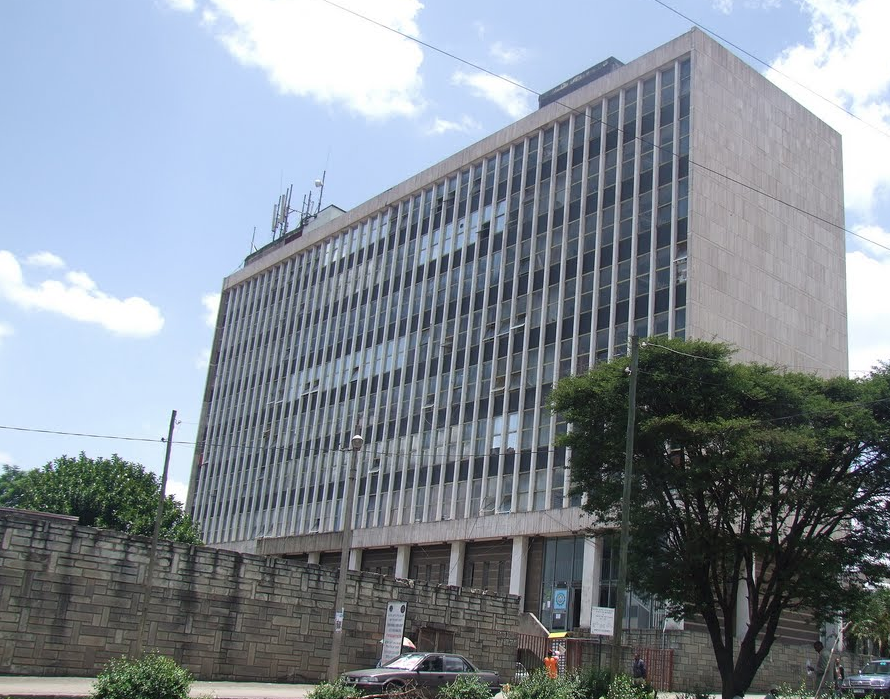
Radar | Feb 24,2024
Buildings in Addis Abeba are mandated to open their parking spaces to the public, as part of a broader effort to address the city’s persistent traffic congestion and enhance parking infrastructure. Addis Abeba Traffic Management Authority has introduced a series of measures with hopes of optimising the use of parking spaces and regulating traffic flow.
Licenses will now be required for operating parking businesses. Building owners who repurpose parking spaces for other activities will face penalties, and fines on drivers who park in non-designated areas will also increase.
The regulation targets underutilised parking spaces, especially within buildings, to increase the availability of parking in the city. It applies to a range of facilities, including roadside, underground, and above-ground parking, as well as modern structures incorporated into new developments.
Biniyam Getachew, director of Parking & Infrastructure Management at the Authority, noted the challenges caused by the city's unregulated parking system, which has resulted in over 80pc buildings failing to offer adequate parking services. He said this deficiency exacerbates traffic issues across the city.
"It's to regulate traffic flow and reduce traffic congestion," he said.
Biniyam remarked that the current approach to parking lacks consideration for the unique demographic and geographic factors that impact mobility. He believes this regulation will address the mismanagement of parking spaces, which have been diverted for unintended purposes.
All buildings with parking spaces must now obtain a certificate of competency, submit safety protocols, and install standardised parking indicators. Parking operators are required to issue receipts, employ administrators wearing reflective uniforms, and install tracking devices to monitor space availability. Signage and digital systems for payment compliance are also mandatory, ensuring transparency and efficient management.
Building owners are given seven days from certification to submit service delivery schedules and display signboards designating areas for public parking. The use of parking facilities for non-parking purposes or tampering with payment machines to generate illegal revenue is strictly prohibited.
While parking service providers have the freedom to set their prices, the Authority has the authority to regulate costs if deemed excessive.
"We encourage a free market system for parking, but we’re prepared to step in if prices become unreasonable," Biniyam said.
The Authority plans to survey all buildings in the capital to ensure compliance with the new parking regulations. The global parking industry is projected to grow to 5.8 billion dollars by 2028, with smart technology and predictive parking solutions driving this expansion.
Aron Hotel, which has provided ground-level parking for 17 vehicles since its opening in 2020, faces challenges in meeting customer demand.
"We prioritise our customers, but space is limited," said Hawi Zewde, the hotel’s general manager.
The disparity between building purposes and available parking spaces is another concern. Manager of Addis Parking Plc, a pioneering company in the sector, said imposing restrictions without ensuring sufficient infrastructure is not right.
"It’s putting the cart before the horse."
He urged the government to consider practical regulations that address the rising number of vehicles and limited parking availability, suggesting a cap on prices to avoid overpricing and the illegal use of parking spaces.
A study by C40 Cities revealed that Addis Abeba's parking system is dominated by on-street parking, with few off-street options near public transport terminals, contributing to traffic congestion and road safety issues.
Yonas Minalu (PhD), a lecturer in transportation planning at Addis Abeba University, pointed out the mixed impact of on-street parking.
Yonas emphasised the need for better governance of parking spaces, noting that vehicles spend upto 95pc of their time parked. However, he stressed that regulators must consider the evolving functionality of buildings when calculating the number of parking spaces required for public use. He also urged the adoption of traffic impact assessments before new buildings are constructed.
"Building functionality matters," he said.
The city’s master plan includes the construction of 60 parking areas by 2027 to reduce congestion, with the Megengna smart parking system already in operation at a key traffic juncture. Other high-density areas like Lideta, Bole, and Merkato have been earmarked for similar parking management solutions, alongside additional sites in Megenagna.
The Authority collects 20pc of parking revenues, but many administrators fall short of their dues. Biniyam expects the new system to generate up to 100 million Br in annual revenue once fully operational.
"Parking management has lagged, but this initiative will close the gaps," he said.
On-street parking services are largely managed by youth associations, with over 405 such groups operating in the city. As the Authority's new system aims to digitise parking services, using an automatic traffic management system that includes digital parking tickets, Associations without a valid contract will no longer be allowed to operate, and unauthorised receipts will be banned.
In collaboration with local tech firm Infratech, the app will allow parking administrators to register vehicle details, monitor parking durations, and facilitate payments through digital banking platforms. Violations will be tracked by plate numbers, streamlining enforcement.
Tariku Ayalew, a member of a parking association near Addisu Gebeya, charges 10 Br for 30 minutes for parking services. However, he noted that many drivers refuse to pay.
PUBLISHED ON
Sep 14,2024 [ VOL
25 , NO
1272]

Radar | Mar 11,2023

Radar | Aug 26,2023

Editorial | Feb 05,2022

Exclusive Interviews | Jan 05,2020

Fortune News | Apr 22,2023

Dec 22 , 2024 . By TIZITA SHEWAFERAW
Charged with transforming colossal state-owned enterprises into modern and competitiv...

Aug 18 , 2024 . By AKSAH ITALO
Although predictable Yonas Zerihun's job in the ride-hailing service is not immune to...

Jul 28 , 2024 . By TIZITA SHEWAFERAW
Unhabitual, perhaps too many, Samuel Gebreyohannes, 38, used to occasionally enjoy a couple of beers at breakfast. However, he recently swit...

Jul 13 , 2024 . By AKSAH ITALO
Investors who rely on tractors, trucks, and field vehicles for commuting, transporting commodities, and f...

Jul 5 , 2025
Six years ago, Ethiopia was the darling of international liberal commentators. A year...

Jun 28 , 2025
Meseret Damtie, the assertive auditor general, has never been shy about naming names...

Jun 21 , 2025
A well-worn adage says, “Budget is not destiny, but it is direction.” Examining t...

Jun 14 , 2025
Yet again, the Horn of Africa is bracing for trouble. A region already frayed by wars...